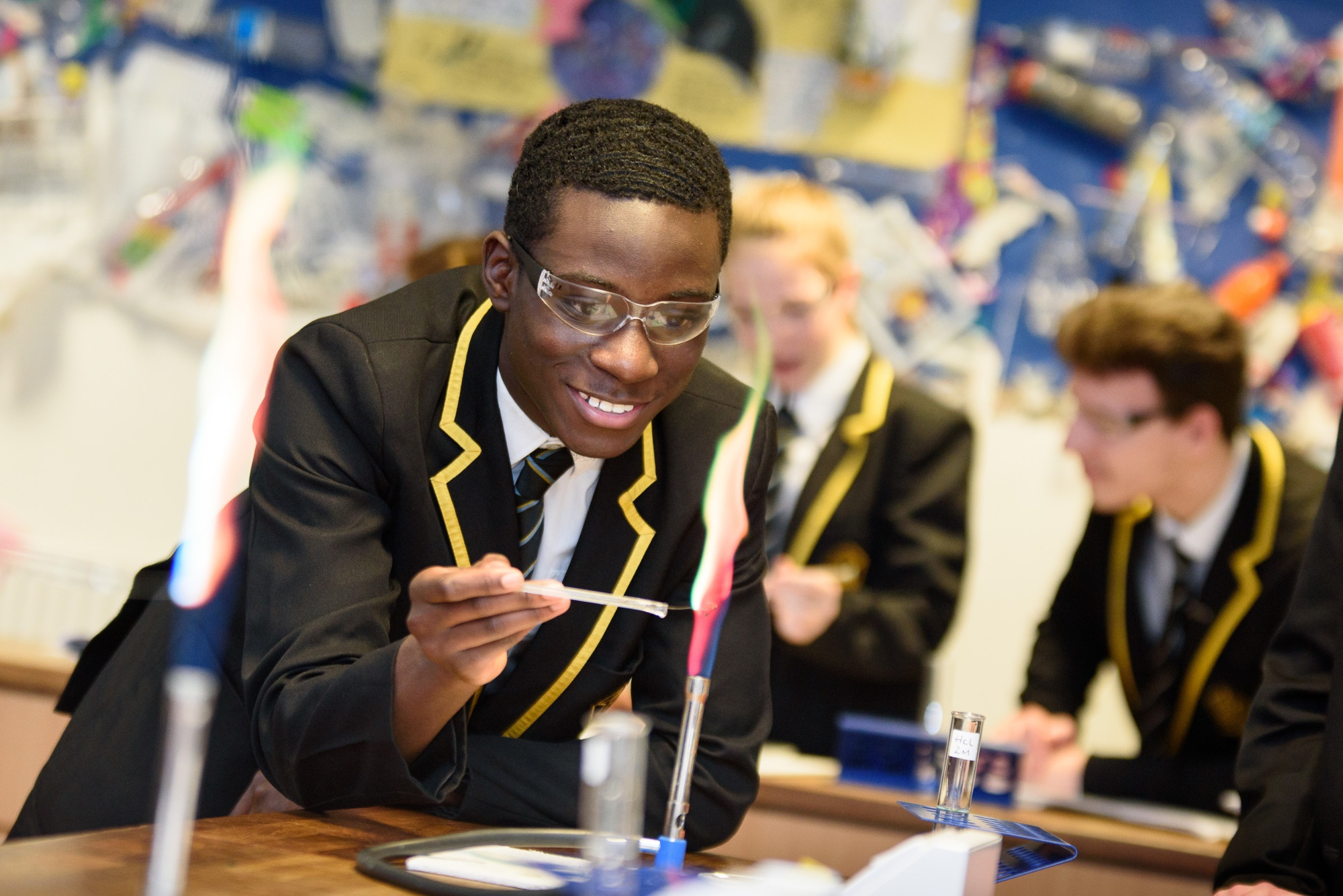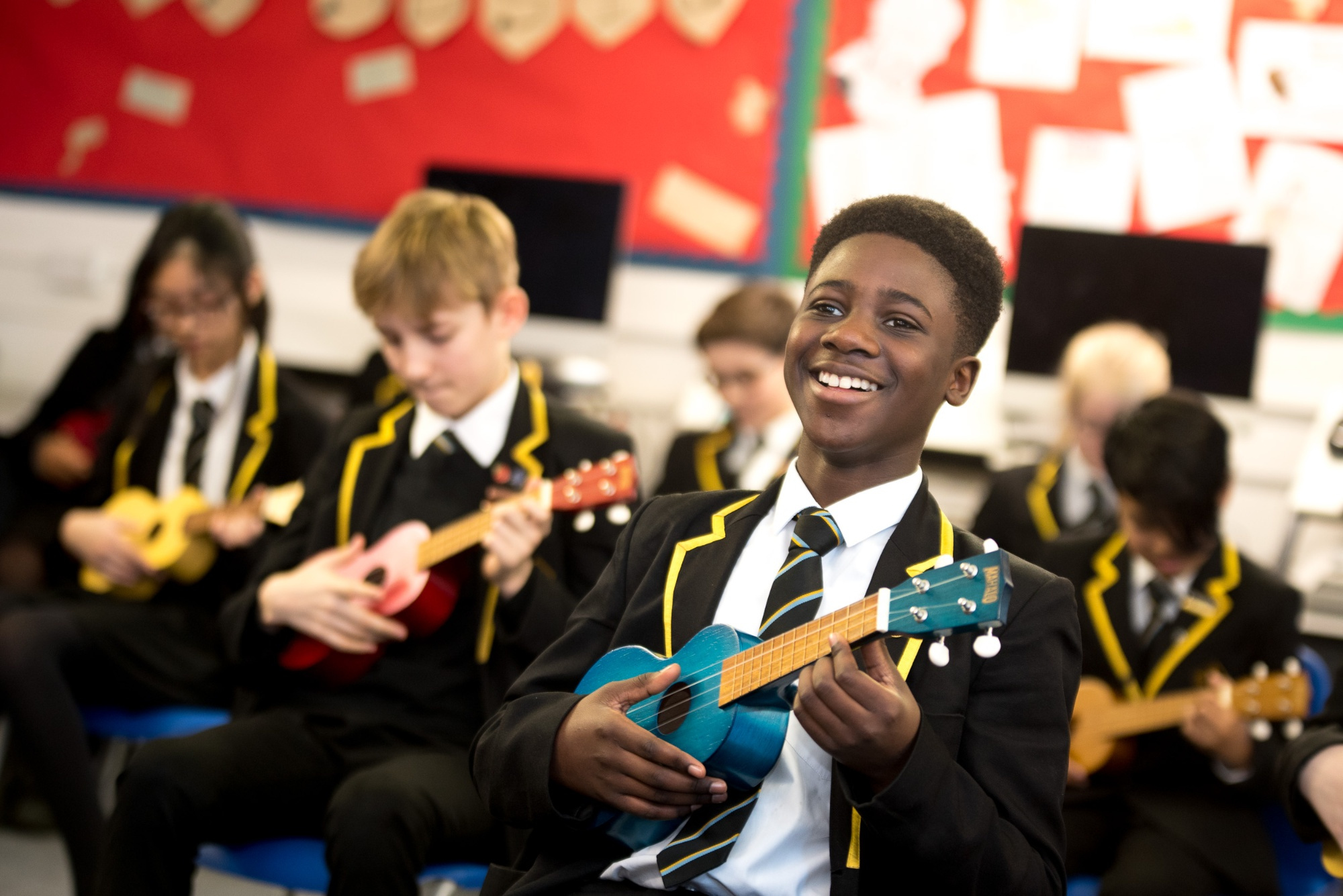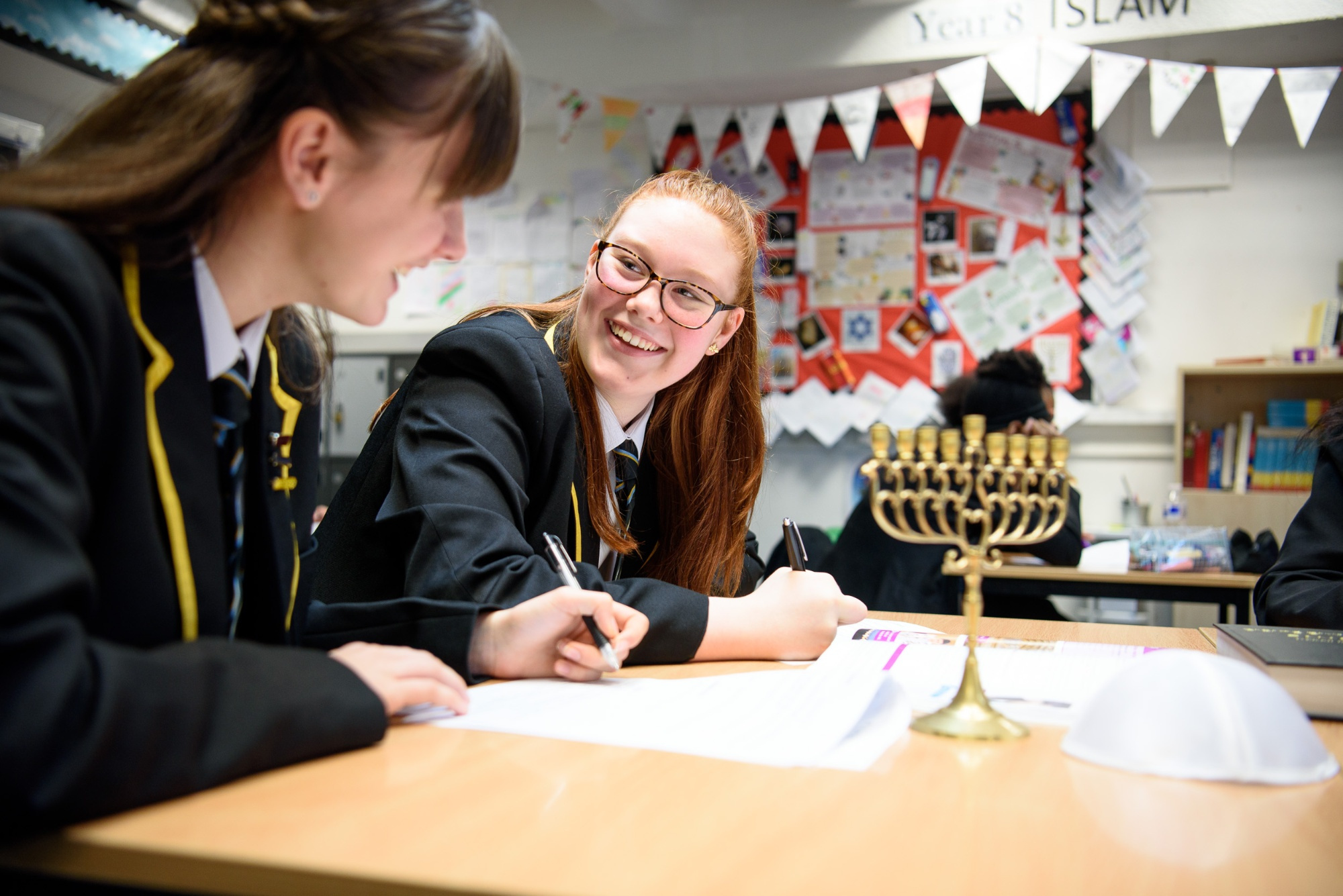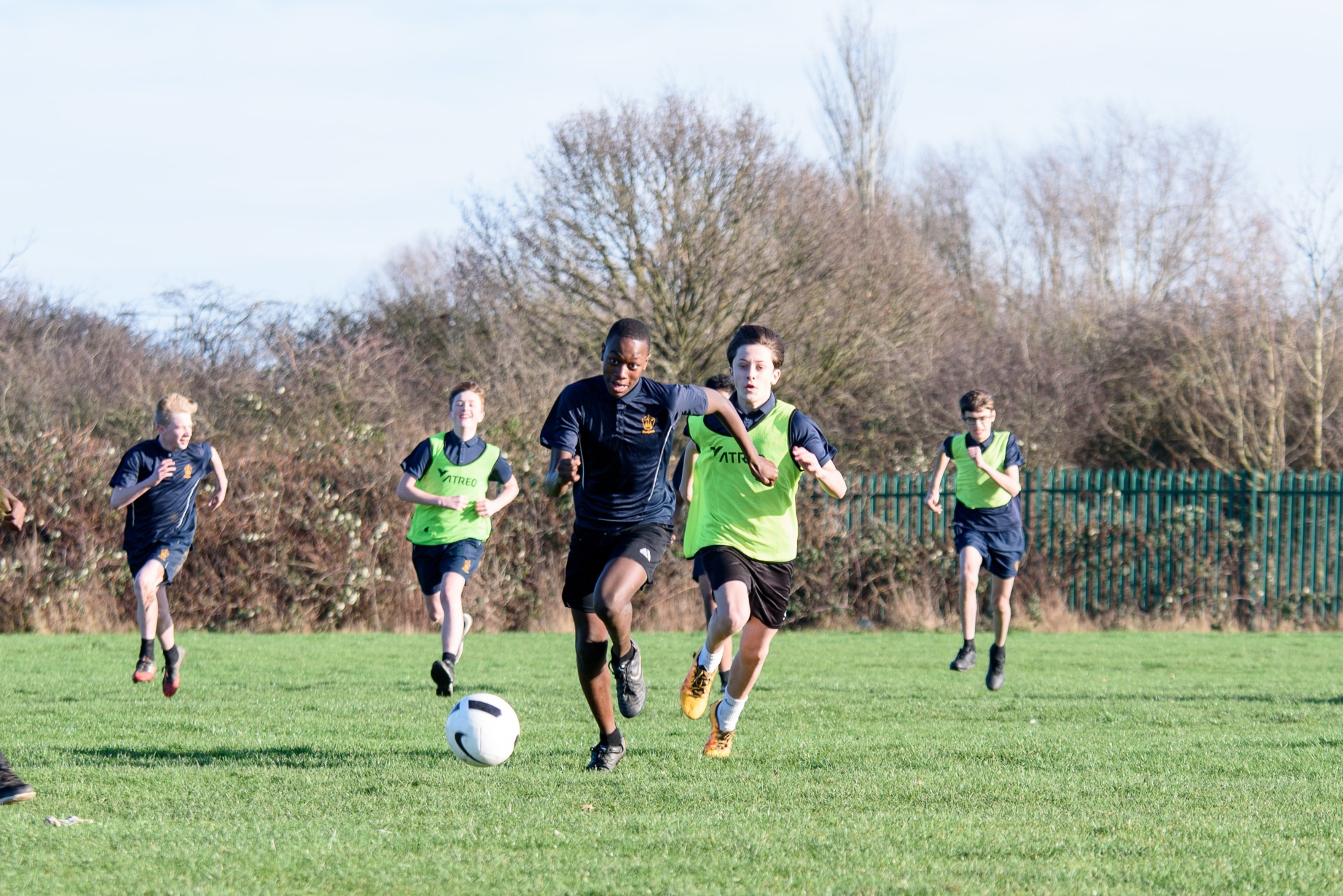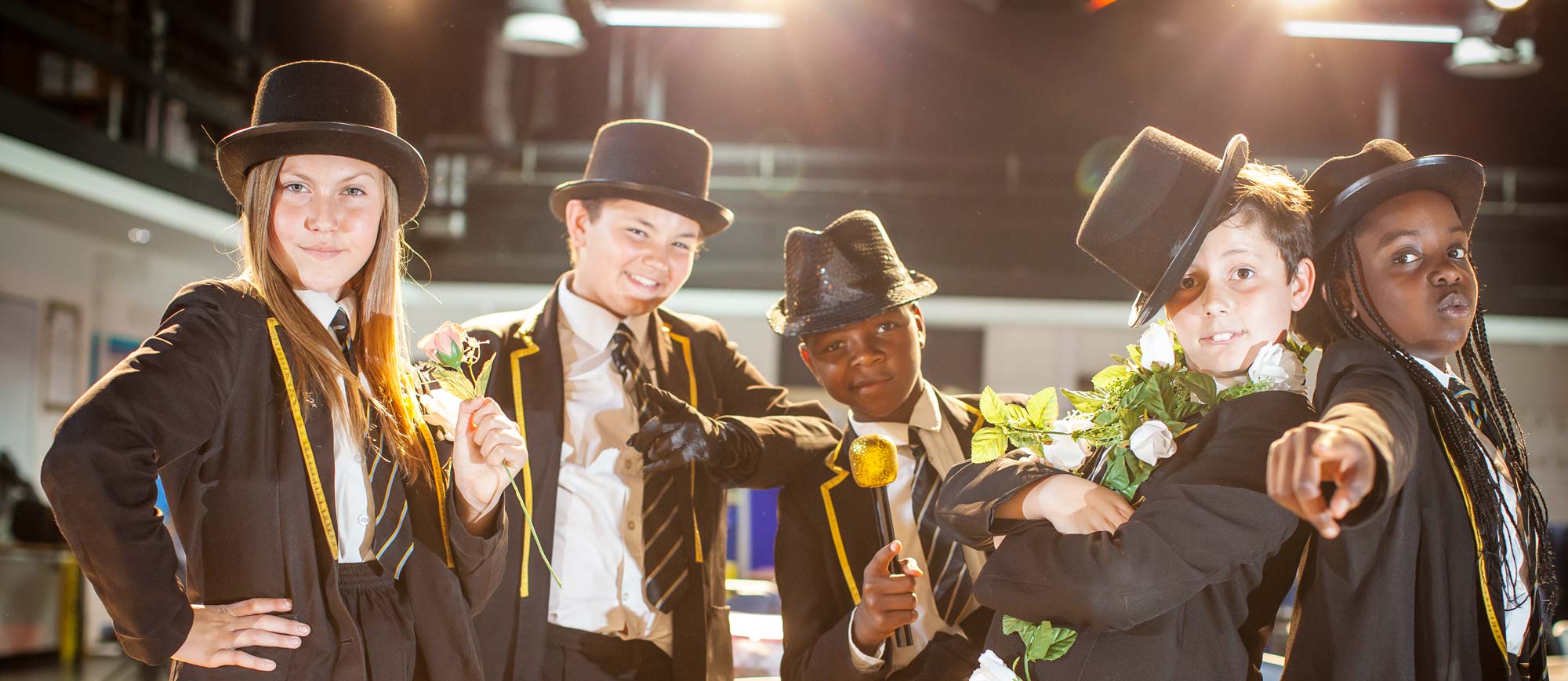Instrumental and vocal lessons are provided by peripatetic teachers from Essex Music Services. For more information, please contact the school office.
Key Stage 3
Year 7
Year 7
Core Skills
This unit will develop the fundamentals of music. Through a series of practical and appraising activities, pupils learn about elements of music, such as pitch and rhythm. By the end of the unit, pupils should feel confident in playing melodies on the keyboard and being able to describe musical features of music through listening.
Theme and Variation
During terms 3 and 4, pupils will develop knowledge of music in the form of theme and variation. Through performing, composing and appraising music, pupils will deepen their understanding of the form and also learn about different composers from the Baroque and Classical period.
Ensemble Skills
This unit will focus pupils learning about common ensembles in music, ranging from classical, jazz and pop music. Pupils will investigate the skills required to perform in an ensemble through practical exploration and appraising activities.
Revisit
The end of term unit is designed to revisit the work taught throughout the year to reinforce what has been taught, to address any misconceptions and prepare pupils for their end of year assessment.
Year 8
Exploring chords
The exploring chords unit is to introduce pupils to harmony in music, focussing on developing pupils' knowledge of being able to play chords and their function in music. Throughout the term pupils will be developing their instrumental skills, composing and appraising music.
Pop chords and sequences
Following on from the unit exploring chords, pupils will be exploring common chord sequences in pop music and how composers use techniques to keep them sounding like new songs. Pupils will also look at how technology has been used to add effect to sounds and shape the music we listen to today.
Blues and Rock’n’Roll
In term 4, pupils will be comparing 2 styles of music to develop their skills in being able to compare and evaluate music. Pupils will also be learning about musical features of these styles] of music and how musicians shaped some of the music we listen to today.
The Beatles
Pupils will explore how The Beatles came to be one of the most successful bands in history, about the members and legacy they left behind.This unit will explore the impact The Beatles had on popular music and how it contributed to the music we listen to today.
Pop past and future
The pop past and future unit looks into how this style of music has changed in the last 60 years. Comparing the pop music of the 1960's and 70's to the music of today. Pupils will research into the culture of pop, its identity, musical features and how the recording industry grew to power.
Revisit
The end of term unit is designed to revisit the work taught throughout the year to reinforce what has been taught, to address any misconceptions and prepare pupils for their end of year assessment
Year 9
Year 9
It's all about the bass
During this unit, pupils will explore the development of bass instruments and the role they have in ensembles. Through the use of bass clef notation and bass tab, pupils will develop their skills in reading these forms of notation, whilst learning famous bass lines from different styles of music.
Homophonic music
Homophonic music is a common form of today's pop music. Pupils will be investigating songs that are written in this type of texture from different periods of musical history and developing their understanding of how texture is used by composers to develop their songs.
Film music and computer gaming
Film music and computer gaming is a multi-million pound industry. Pupils will be learning about how music was introduced to film and computer gaming, the techniques composers use to enhance images, whilst learning to compose and play music from the styles.
Theatre Music
The musical Theatre unit explores how music helps to tell and support the storylines of the shows. Pupils will learn songs from musicals and study the different techniques composers use to write successful songs. Pupils will also have opportunities to compose their own songs using the techniques explored during the term.
Romantic Melodies
This unit will delve into how music is played expressively, looking at compositional devices and techniques used by composers, who have created some of the most expressive music since the 1800's.
My Music
Our final unit in KS3 for music, gives pupils the opportunity to explore music of their own, either through composition or performing. The work will be recorded and showcased as a celebration of completing KS3.
Key Stage 4
Eduqas GCSE Music
|
Component 1: Performing Total duration of performances: 4-6 minutes |
Non-exam assessment: internally assessed, externally moderated. 30% of qualification. A minimum of two pieces, one of which must be an ensemble performance of at least one minute duration. The other piece(s) may be either solo and/or ensemble. One of the pieces performed must link to an area of study of the learner’s choice. |
|
Component 2: Composing Total duration of compositions: 3-6 minutes |
Non-exam assessment: internally assessed, externally moderated 30% of qualification. Two compositions, one of which must be in response to a brief set by WJEC. Learners will choose one brief from a choice of four, each one linked to a different area of study. The second composition is a free composition for which learners set their own brief. |
|
Component 3: Appraising Written examination: 1 hour 15 minutes (approximately) |
Written examination: 40% of qualification. This component is assessed via a listening examination. Eight questions in total, two on each of the four areas of study. Area of study 1: Musical Forms and Devices Area of study 2: Music for Ensemble Area of study 3: Film Music Area of study 4: Popular Music. Two of the eight questions are based on extracts set by WJEC. |
